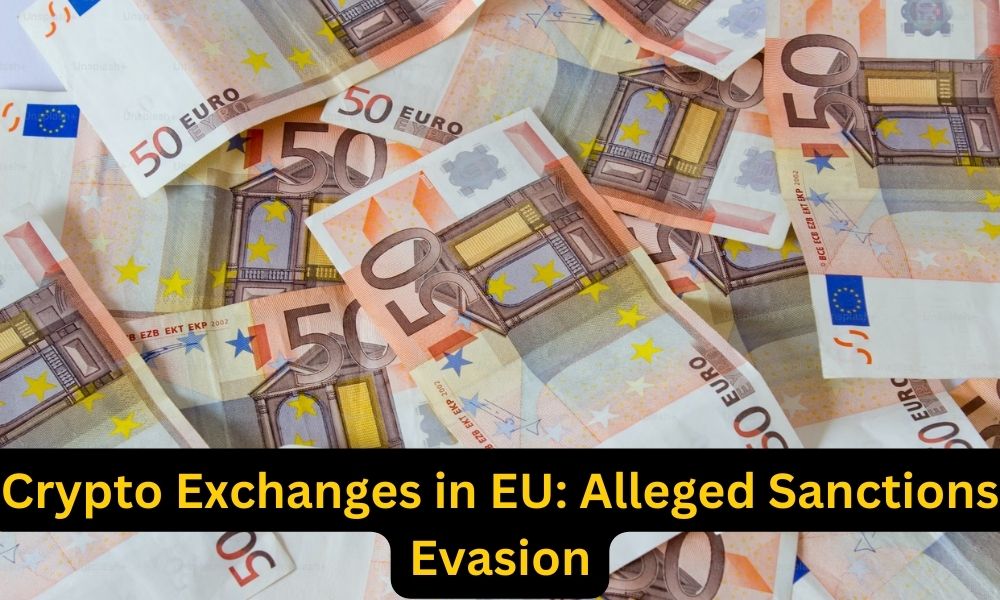EU Cryptocurrency Exchanges Accused of Assisting Russians in Evading Sanctions – Investigative Report
An investigation by an international team of journalists has unveiled the alleged involvement of cryptocurrency exchanges in Estonia and Lithuania in aiding Russians to bypass Western sanctions and facilitating the laundering of more than €1 billion ($1.05 billion) in assets.
EU Crypto Exchanges: Alleged Sanctions Evasion
Published on the VSquare news outlet’s website, the report, conducted by journalists from VSquare, Delfi, Siena, Fronstory, Paper Trail Media, Der Spiegel, ZDF, and Der Standard news outlets, claims that Estonia, due to its lenient crypto licensing system established in 2017, has emerged as a global hub for crypto companies. Approximately 55% of the world’s virtual currency service providers, around 1,600 firms, were registered in Estonia as of mid-2021, seeking the coveted status of being an EU-licensed firm.
However, scrutinizing approximately 300 Estonian-registered crypto companies reportedly revealed many irregularities. The report alleges Russian intelligence ties, extensive money laundering operations, numerous instances of international fraud, and a significant lack of transparency among these licensed companies. Leveraging the credibility bestowed upon them by their EU-registered licenses, these entities have purportedly been able to launder or defraud victims of more than $1 billion in cryptocurrency assets.
Read:What’s a key benefit of responsive display ads?The report states, “The term ‘licensed in the EU’ became a selling point for international fraudsters who used the jurisdiction to inject trust in their illegal operations.”
The investigation also claims sanctions evasion, particularly following the onset of the Ukraine conflict, which led to the imposition of Western sanctions on Russians, depriving them of many international financial instruments. With Russian banks disconnected from the SWIFT interbank messaging system, cryptocurrency emerged as an alternative for cross-border transactions due to its near-total anonymity.
The report details examples, such as the Russian private military group Rusich using nine cryptocurrency wallets in Estonia to raise at least $210,000 between 2022 and 2023. Estonia’s Coinsbit platform is alleged to have facilitated the conversion of Russian rubles into Bitcoin, and crypto exchange MEXC reportedly offered ruble payments through its person-to-person mechanism. Payeer, a prominent crypto exchange and payment processor, is said to have published tutorials on bypassing Western financial sanctions.
In response to illicit crypto financing, Estonia tightened its anti-money laundering regulations in 2022, resulting in over 1,500 crypto companies losing their licenses. However, many of these entities reportedly relocated to neighboring Lithuania, which currently hosts over 800 virtual asset firms, a significant increase from just 20 in 2019.
Read:What you might have to do for some highway construction?The investigation reveals connections between one of these crypto companies and Sber, Russia’s largest lender. Estonia’s MoneySwap OÜ, operating the virtual assets platform Mercuryo, moved to Lithuania in 2022 as MoneyAmber UAB.
The report notes that the shares are managed through a Cypriot company, MRCR Holdings, with Akshin Dzhangirov, the brother of Sber’s Chief Risk Officer, among its shareholders. While the report does not confirm their involvement in sanctions evasion schemes, it highlights that Akshin received around $300,000 in income from Sber in 2021.








